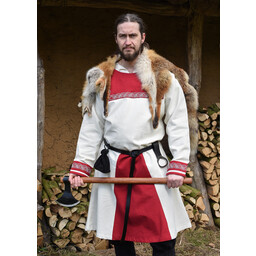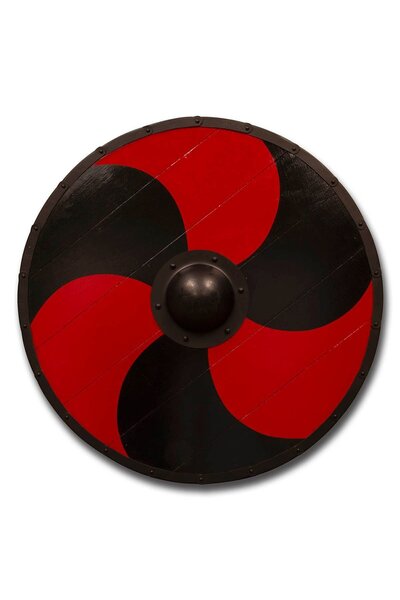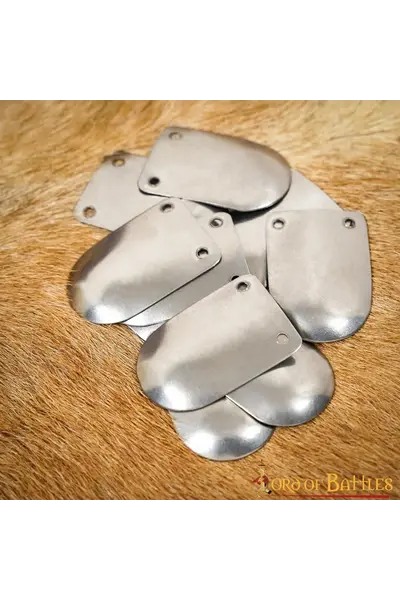Product description
Viking tunics like these were worn between approx. the eighth and eleventh centuries. The tunic can be used for re-enacting Vikings from northern Europe, Rusvik Vikings and Normans.
Typical for this tunic is the bottom that consists of several strips of fabric sewn together, creating a wide volume. This technique is based on various excavations of historical clothing fragments, including Haithabu and Viborg (Denmark). Viborg was on the military road that ran through Jutland to Central Europe. The name of this place suggests that there was a holy place in the Viking age. Vi is an old word for holy place and borg meant fortification or hill. So 'the holy place on the hill'.
This tunic is made of sturdy cotton and has beautiful embroidered patterns at the neck and at the ends of the sleeves. These patterns are based on knot motifs on the Stone of Stora Hammar on the island of Gotland, Sweden. This stone shows mythological and warlike scenes, such as a sacrifice and Viking ships with warriors.
The tunic consists of two contrasting colors which creates a special effect. We recommend to wear the tunic with a belt.
Details
Material: 100% cotton;
Color: natural-red;
Size: S to XXL (size chart see below);
Length: approx. 117 cm;
Washing instructions: hand wash or hand wash stand washing machine;
Based on historical clothing fragments;
Shipping weight: 2 kg;
| Size | S | M | L | XL | XXL |
| Chest circumference (in cm) | 92 | 100 | 108 | 116 | 120 |
Packaged with 100% recycled material
When packaging this item, we exclusively use 100% recycled plastic and recycled paper/cardboard from FSC certified forests. We reuse a large part of the material directly without the intervention of a recycling process.
Recycle the material by separating your waste:
1. Cardboard: separate or reuse your paper.
2. Plastic cushions, clothing bags and plastic tape: separate or reuse your plastic. If possible, pierce the cushions with a volume reduction needle.
3. Paper packaging for jewelry and small items: these have a plastic inner layer. Remove these, then separate your paper and plastic.
























